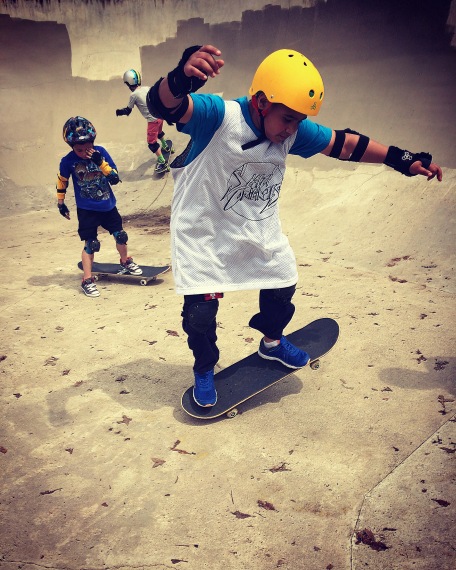Four Main Community Priorities in the Realm of Special Needs / #empathiccapitalism #business #specianeeds ScalziOriginals.US

- Housing for Adults with Special Needs
- High-quality at-home/ community 1:1 and Special Educational services for individuals
- Mentoring services for at-risk youth
- Executive function-based Youth Sports programs for youth and adults with special needs operated by qualified special educational professionals
Special Needs Housing
As of fifty years ago, across the United States of America, including Connecticut and New York, of which the focus is herein, housing for adults with severe special needs was in the form of asylum centers. Since then, awareness in human rights and the rise of special educational services has led to a movement towards state-funded housing and privately-run organizations offering adult-special needs housing. Even so, the waiting list for such housing is constant, and the quality of the housing itself is mid to low-quality in its recreational and residential amenities.
It can be aptly put forth that this is a segment of the population that is underserved, leaving great strain on families who have aging offspring with intellectual disabilities, Downs Syndrome and individuals on the autism spectrum who are intellectually low-functioning. With Connecticut’s economic budget in a historic long-term down-grade, there is no future growth of drastic refurbishing of such residential living for such individuals. Moreover, high-quality specialized educational services cannot be attained for those living in state-run homes, leaving a staff of paraprofessionals, and unqualified, underpaid caretakers to lead in the day to day life of these members of this community.

1:1 Special Educational Services for Individuals
Families across all economic strata with offspring with special needs find that the range of services available and the quality of these differs according to affordability. It is so, that dynamic, innovative, at-home/ community Special Educators are needed to instruct in cognitive-physical development, while also providing support and respite to families. These services incur a great cost which is simply not attainable for most families with children and adults with special needs.
The knowledge and application of the best instructional methods and strategies in the realm of special education resides with Special Educators. These are trained to teach the whole person. Though this be so, health insurance companies do not favor degreed Special Educator professionals, but Applied Behavioral Analysis specialists (ABA therapy), creating an immediate insurance in-network reimbursement for such therapists, but not so for degreed-Special Educators. ABA is a therapy fashioned in the 1960s that was culled from training dogs. It focuses on limiting environmental distractions while using positive behavioral reinforcement tactics to achieve a desired result in the individual. Special Educators are cognizant of such canine training, yet are natural clinical teachers who approach their work as students themselves, applying a holistic-style instruction that is flexible, open to change and fluid in its delivery.
Funding for such services has been difficult due to health insurance companies prioritizing the aforementioned ABA therapy pathway of home instruction. An important obstacle to mention that directly limits families from hiring the best, qualified professionals is beholden to the controversy surrounding the dramatic rise of autism in the United States of America.
Prevailing ABA therapy philosophy holds that the rise of autism is attributed only to human DNA anomalies, and certain environmental stressors. The ABA therapy position on the cause of autism is resolutely in line with the governments Center for Disease Control findings that harmful-ingredients in vaccines, such as mercury, formaldehyde, aluminum and other carcinogenic agents are not causing negative effects on developing human brains. The association of ABA therapy and the prevailing CDC findings are well-known. Health insurance companies and pharmaceutical-vaccine production companies are in line with this notion, and this directly offsets the possibility of a great number of Special Educators, who refuse that ABA therapy is the only or the best instructional intervention in the lives of those identified as on the autism spectrum, to reach economic help that can further develop their ability to operate as independent Special Educators, or pave an insurance reimbursement pathway for families with children and adults with special needs to afford such services ‘out of pocket,’ meaning to pay directly without help from insurance companies.
Long-Term Development and Mentoring of At-Risk Youth and Young Adults
A number of developments have factored into the breakdown of the traditional American family unit leading to a deterioration of strong family ties:
- Men in mid to low-income social-economic demographics enter a general work force system that favors a ‘cronyism’ network-system based on personal relationships.This limits upward economic mobility for the vast majority of American citizens and directly affects the prognosis of American families to find economic freedom. Instead, the social-economic dynamic in many households, especially in and near urban areas hovers between survival and poverty.
- Public school educational experience educates and shapes minds to be socially-progressive, graduating a large quantity of people into an aimless focus. For those who sign up for a four year college education, the social-progressive indoctrination is continued without a balance of instilling a valuing and practice of entrepreneurial-business skills.
Under such conditions, hope in the future flickers and this inculcates familial instability. Immediate escape mechanisms, such as the pervasive abuse of alcohol and drugs, further degrades the family unit, creating a condition of absent fathers, absent mothers, parents who work long hours and cannot adequately tend to upbringing their families, with children raising themselves and using technology as a means of emotional support.
Short and long-term solutions to address the breakdown of the traditional American family unit include:
- Raising children up in the nurturing and presence of God’s Word as found in Holy Scripture.
- School curriculum that develops parenting skills should be part of public schools nation-wide.
- Overhauling public school curriculum to shift from a narrow focus on science, technology, engineering, mathematics, and sports, to one that applies such focuses with the practice of social entrepreneurship. This is an empathic capitalism which favors business self-employment skill acquisition that is community-building focused on the local, national and global level.
- On the short-term, increasing funding for high-quality mentoring, at-risk youth programs can immediately answer current community needs. Such programs will be in greater demand in mid to low social-economic homes and communities. Such an initiative is already in practice, and has been so for decades, yet it is merely taking care of the aftermath, or symptoms of a family breakdown.
Long-term nation-wide healing solutions have to be immediately instituted across the country, bringing wide-spread empathic capitalism educational curriculum into elementary, secondary and academic institutions. The focus has to be on helping America’s sons, who become America’s Fathers, become economically sustainable.

Scaling Special Needs Youth and Adult Cognitive-Physical Programs
The downward economic pressure on the rise of innovative Special Educators cannot be understated. Their ability to create and scale special needs youth and adult is directly supported through their ability to take care of their livelihood and that of their families. The absence of health insurance company reimbursement support for their services to families, funnels Special Educators to only work in private and public schools. For those brave stalwarts who rough the road as educational, social entrepreneurs their exists no guarantees of income, and no certainty of economic success. Such entrepreneurial monikers as ‘hustle,’ ‘fail fast’ and iron-like determination create slim possibilities to operate as independent professionals. Without the economic support from the insurance companies, families routinely cut request for services, and due to this, the social, entrepreneurial Special Educators experience fast drops in monthly income.
The scaling of services is the only solution in the absence of the economic supports most health care professionals enjoy through health insurance companies. Community demand exists for individuals with special needs to transition from sedentary lives into challenging mental-physical activities. Skateboarding and surfing are two excellent executive function skill toning activities, along with track and field sports, which offer a challenging, yet fun environment that generates a repetitive sense of accomplishment, social and motor skill development, and community integration.
Greater levels in private and public funding of Special Educational foundations with degreed-Special Educators, offering quality instruction in the above mentioned sports would introduce a higher-quality level of educational, life skills instruction to the community, as well as economically support an entire industry of Special Educators who face tremendous economic obstacles to operate independently, and thus, invest greater personal time and energy in directly meeting the dire community need.
Comments